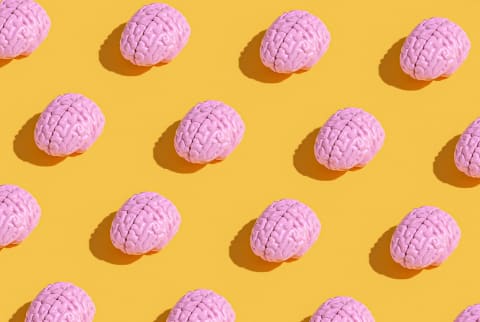Advertisement
4 Ways To Detox Microplastics From The Brain & Reduce Alzheimer's Risk


Micro- and nanoplastics (MNPs) have been studied as an environmental issue for a while now (about 20 years) but researchers are only just beginning to truly understand their vast impact on human health.
According to a 2022 narrative review from the International Journal of Environmental Research, adult women and men are estimated to consume approximately 133,000 and 97,000 particles of plastic1, respectively, from their water alone each year. And it turns out that ingestion of MNPs is a massive concern for not only gut and immune health but brain health as well.
In 2022, researchers discovered that MNPs have the ability to break the blood-brain barrier; an animal study published by Nanomaterials now reveals how, exactly, this might occur2.
Microplastics & the blood-brain barrier
The blood-brain barrier (BBB) is a protective wall that prevents toxins or pathogens from entering the brain. If these unwanted compounds are small enough, however, they can breach the barrier and impact neurological function.
MNPs ingested from an individual's diet (i.e., via food and water) have been found to break through the BBB. Over time, the presence of these plastic particles can increase inflammation in the brain and even contribute to neurological conditions, such as Alzheimer's and Parkinson's.
In the study, researchers orally administered MNPs made of polystyrene (a food-grade plastic used to make Styrofoam takeout containers and meat packaging) to mice via an aqueous solution. They discovered that plastic particles were able to breach the BBB (thanks to a surface structure called a biomolecular corona) and enter mouse brains in just two hours following ingestion.
How to detox microplastics
Until further research is conducted outlining the specific health consequences of MNPs in the brain, scientists suggest limiting exposure and restricting usage as much as possible. Avoiding single-use plastic and plastic food packaging is a good place to start.
Avoid other environmental toxins as well (e.g., heavy metals, harsh chemicals, pollutants, mold, etc.), as an increased toxic burden makes it more difficult for your detox organs to filter, bind to, and eliminate all unwanted compounds.
While MNPs cannot be avoided entirely, there are natural ways you can strengthen your body's natural detox pathways on a daily basis—such as eating a plant-rich diet with detoxifying herbs and micronutrients, sweating regularly (e.g., through physical activity, sauna usage, and hot baths), and hydrating properly (but remember—tap water has far fewer plastic particles than bottled water!).
You can also consider taking a targeted detoxification supplement that delivers antioxidant ingredients (e.g., glutathione, vitamin C, and milk thistle), promotes optimal function of your elimination organs (i.e., the liver, kidneys, gut, lungs, skin, and lymph), and further bolsters your body's natural detox pathways. (Discover mindbodygreen's favorite liver detox supplements here.)
The takeaway
Micro- and nanoplastics can wreak havoc on the body, including the brain. While avoiding them entirely is virtually impossible, incorporating daily detoxification methods into your well-being routine can help support your liver and other elimination organs to rid yourself of MNPs and other unwanted toxins.